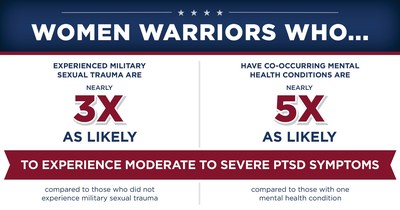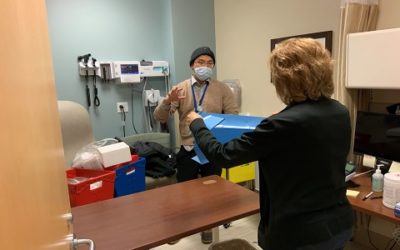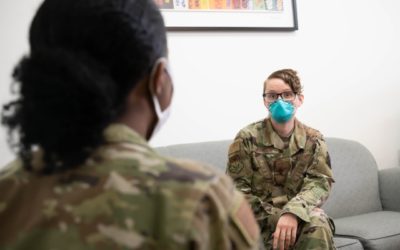Even though fewer than 7% of patients with small cell lung cancer (SCLC) survive five years after diagnosis, some patients continue to refuse treatment.
SCLC Survival Rates Better With Military Healthcare Than in General Community
Small-cell lung cancer patients receiving universal healthcare access, as in the U.S. military, had longer survival rates than similar patients in the U.S. general population, according to a new study.
When Is a Biopsy Appropriate to Diagnose, Rule Out Skin Cancer?
Skin malignancy has increased in prevalence over the last 15 years, but it is not clear how military personnel have been effective.
Skin Cancer Screening Rates Low for Veterans but Higher Than Usual
While it is well known that military veterans are at increased risk for skin cancer, what is less understood is how often they are screened for skin cancer.
Total Margin-Controlled Excision Best for Keratinocyte Carcinoma
The most common human malignancy is keratinocyte carcinoma (KC), which includes basal and squamous cell cancers.
Knowing MST Background Can Help Improve Care for Veterans
Military sexual trauma is on the increase, and more and more data is linking it to serious physical health problems.
Anxiety Sensitivity Linked to PTSD Among Women Who’ve Experienced MST
Anxiety isn’t just mental. It can also cause physical symptoms, such as heart palpitations, sweaty palms or shortness of breath. Anxiety sensitivity reflects the belief that those bodily sensations are harmful and dangerous.
When Is a Medication Changes Necessary in Veterans With Heart Failure?
Inhibition of the renin-angiotensin-aldosterone system (RAAS) plays an important role in reducing morbidity and mortality in patients with heart failure (HF) —one of the most common causes of hospitalization among veterans—particularly in those with HF with reduced ejection fraction (HFrEF).
History of Self-Injury Linked to Higher Suicide Risk Among Veterans
The VA has put significant focus on reducing veteran suicide rates over the last decades. But what about those who hurt themselves while stopping short of taking their own lives?
Only About Half of ASCVD Patients Get Influenza Vaccines
Only about half of U.S. patients with atherosclerotic cardiovascular disease receive annual influenza vaccine, and the rate is lower among Black and Hispanic patients than white ones.
VA Study Establishes Link Between Flu Infection, Acute Myocardial Infarction
Previous studies have established an association between laboratory-confirmed influenza infection (LCI) and hospitalization for acute myocardial infarction (AMI).
Kidney Injury Gauged in VA Influenza, COVID-19 Patients
COVID-19 is often compared to other respiratory viral illnesses, but few of those comparisons contrast the virus’ varying effect on kidney health and function.
Clinical Pharmacy Specialists Help Veterans Keep Diabetes Under Control
Diabetes affects one in four veterans—a rate more than double that of the general population. In an effort to improve glycemic control among veterans with diabetes the VA involves clinical pharmacy specialists (CPSs) in medication management, a strategy that has proven beneficial in a studies at a number of centers.
Ketogenic Diet With Coaching Appears Beneficial for Veterans With Diabetes
Diabetes affects more than 34 million—or nearly 10% of—Americans and is the seventh-leading cause of death in the U.S. The prevalence is even higher among U.S. veterans; approximately 25% of individuals who’ve served in the military have diabetes.
Recent VA Review Calls for More Research on Ketogenic Diet Benefits
A recent review noted that ketogenic diets, which generally are very low in carbohydrate and very high in fat, have traditionally been employed to treat epileptic disorders, although they have been touted as a therapy for Type 2 diabetes and a range of other health conditions—neurodegenerative diseases, cancer, obesity, heart failure and nonalcoholic fatty liver disease (NAFLD).
Disparities Fueled Outbreaks of COVID-19 Among Native Americans
From the start of the pandemic, American Indians and Alaskan Natives have been disproportionately impacted by the virus. New data released last month by Johns Hopkins University (JHU) helps visualize that disparity, which has been blamed on a higher rate of preexisting conditions and poorer health infrastructure.
Native Americans Have the Highest U.S. COVID-19 Vaccination Rates
Native Americans, a category including American Indians and Alaska natives, have consistently had the best COVID-19 vaccination rates in the United States since the shots became available in early 2021, according to the national Centers for Disease Control and Prevention.
Military Sexual Trauma Appears to Be a Risk Factor for Hypertension
Young and middle-age veterans who experienced sexual harassment and assault during military service are at an increased risk for hypertension and, potentially, its cardiovascular complications, a new study suggested.
Military Reserve Component Less Likely to Get Needed Mental Healthcare
Members of the reserve component of the U.S. military were much less likely to receive recommended mental healthcare when compared to active-duty personnel, according to a new RAND Corp. study.
VA Researchers Seek to Understand Factors Linked to Prosthetic Joint Infection
In most head-to-head comparisons, surgical care at the VHA is found to be as good or better than that provided in the community. That’s why a recent study on joint replacement surgery was so surprising.
BCG Vaccine Doesn’t Protect Against COVID-19 Infection, Severity
At an earlier point in the COVID-19 pandemic, hopes were raised that the BCG (Bacillus Calmette-Guérin) vaccine, which stimulates innate immunity, could provide protection against SARS-CoV-2.
mAb Therapies Effective Against Severe COVID-19 in Native American Cohort
Monoclonal antibody (mAb) therapies were highly effective against COVID-19 in a recent study of Native Americans — a group that has been underrepresented in clinical trials for COVID-19 therapies despite being at greater risk for severe disease.
Patients With Uncontrolled HIV Face Higher Risk of Sudden Cardiac Death
A new veterans study underscored the critical need for viral suppression and heart disease risk factor modification among HIV patients. Researchers determined that those with sustained viremia or low CD4 cell counts had an excess risk of sudden death.
OIG: Lack of Planning Made Illinois CLC COVID-19 Outbreak Worse
From almost the very start of the pandemic, nursing homes and long-termcare facilities proved to be particularly vulnerable to the virus. The close quarters combined with elderly patients suffering from preexisting illnesses resulted in a number of outbreaks and a much higher death rate than the general population.
PTSD Can Worsen Dying Experience for Veterans Facing End of Life
Most veterans with post-traumatic stress disorder don’t just age out of it. At their end of life, veterans with PTSD often frequently exhibit irritability with their caregivers, sleep problems, nightmares, anxiety, guilt, lack of acceptance and restlessness, according to recent research.
Flush Out the Foe: Veterans Beat Cancer With Help From Their (Screening) PALS
Recognizing the substantially greater risk for lung cancer faced by veterans, the VA has aggressively ramped up its screening program to reach those at-risk wherever they are.
Identifying Vulnerabilities: Choosing the Best Treatments for Real Patients
The open secret about most clinical trials is that they are not particularly useful, at least not for patients and practicing physicians. Trials typically establish criteria that restrict participation to unusually healthy patients.
Know Your Enemy: Genomics Enables Targeted Strikes on Cancer
As every military strategist knows, winning a battle depends on knowing your adversary’s vulnerabilities. In the last decade, that same approach has transformed cancer therapy.
Understanding the Breath-Taking Lung Cancer Risks in Servicemembers, Veterans
OMAHA, NE—Lung cancer kills as many people in the United States as the next three most deadly cancers combined. This year, about 236,000 people will be diagnosed with the disease, and nearly 132,000 will die from it. As common as it is in the general population, lung...
Work Setting Strongly Affects Retention Rates for Women’s Health Providers
The delta variant’s march across America brought a crisis long in the making to the blazing front of the news—and made research coming out of the VA potentially beneficial for the wider health care industry.






